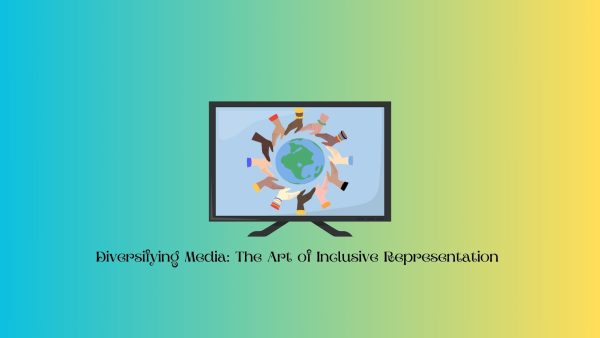The Endless Cycle of Consumption
The Diderot Effect
October 28, 2018
Ever since kindergarten, the necessity for new school supplies has been ingrained into the minds of most children and teenagers. Unsharpened pencils, perfectly shaped felt tip pens, smooth and precise crayons–all lined up in rows in a brand new pencil case. Of course, one cannot forgo a clean new backpack, filled with folders and binders and lined paper all color coded and ready for the beginning of the school year.
This materialistic culture has been encouraged by schools, parents, and peers throughout the lives of so many people across the United States. Take the example of the back to school packages now offered by many elementary schools, which provide a plethora of school supplies considered necessary by numerous teachers and students. The reality is, the majority of those supplies will be used rarely and hardly ever completely. Does every child really need new markers, crayons, colored pencils, scissors, glue sticks, folders, and pencils every single year? Yet for some reason, going back to school seems incomplete without a fresh set–abandoning a perfectly good collection at home.
This is just one example of the increasingly alarming effects of the Diderot effect.
The Diderot effect is based off of the story of the French philosopher Denis Diderot, a relatively poor man whose creation of the Encyclopédie was rewarded by Catherine the Great with today’s equivalent of $50,000. Overwhelmed with his newfound wealth, Diderot decided to purchase a beautiful scarlet robe for himself. However, he found that the robe was too elegant in comparison to everything else in his house, leading him to purchase everything from a brand new leather chair to a sparkling new mirror. Hence, the Diderot effect was born, which is defined as the idea that a new possession can result in a spiral of consumption in which one is prompted to obtain a series of usually unnecessary items in an attempt to feel more fulfilled. However, this extends beyond just material possessions. Accomplishments, ideas, physical appearances–nearly everything in the world can be seen as never being enough.
Examples of this are prominent throughout society and history. In fact, it is likely that everyone can easily offer at least a few such examples. Sarah Chen (11) admits that she falls victim to the Diderot Effect regularly, always wrestling with the idea that her “life could be better in almost every single aspect.” However, the real question is that of how to put an end to such a frivolous and quite frankly, emotionally damaging habit.
- Admit that Perfection is Impossible
Confidence is something that everyone must strive to achieve. Regardless of how poised or rich or satisfied someone seems, chances are, there was a point in their lives when they felt like they were missing something. However, whether that impossible form of perfection is in the number of zeros in a bank account, the newest designer bag, acceptance into the top college, or a slimmer body, constantly striving for it will not necessarily allow for the most fulfilling life. Sure, certain accomplishments or possessions may temporarily result in happiness, but often times it may just cause an even bigger yearning for something even better. The truth is, the perfect person or item or life just simply does not exist. However, the mindset that one’s life is good enough does.
- Reduce Exposure
In a world where it is pretty much impossible to turn around without seeing a new advertisement or someone else’s amazing outfit, the temptation is endless. But there are some ways to avoid some of the most tempting aspects of life. For example, unsubscribe from all those emails advertisement new sales. Head to the park or the movie theatre instead of the mall. Go out for dinner instead of sitting in bed and scrolling through Instagram. While jealousy is unavoidable, living in the moment is just as possible. Reduce the exposure to what might harm one’s self esteem or cause the urge to splurge unnecessarily, and instead enjoy life as it is.
- Look Towards the Future
Finally, step outside of the materialistic or emotional focuses of today and consider how important such issues may be in five, ten, or fifteen years from now. Chances are, the majority of the results of the Diderot effect are short-term. Buying that car right now will not guarantee happiness ten years from now. Regardless of how cheesy and cliche it may sound, memories are truly some of the only permanent aspects of life. So forget material remnants of life, and focus on creating a truly memorable and enjoyable life.
Ready to use all those abandoned pencils, crayons, and markers from over the years? As Diderot advised, “let my example teach you a lesson. Poverty has its freedoms; opulence has its obstacles.”























